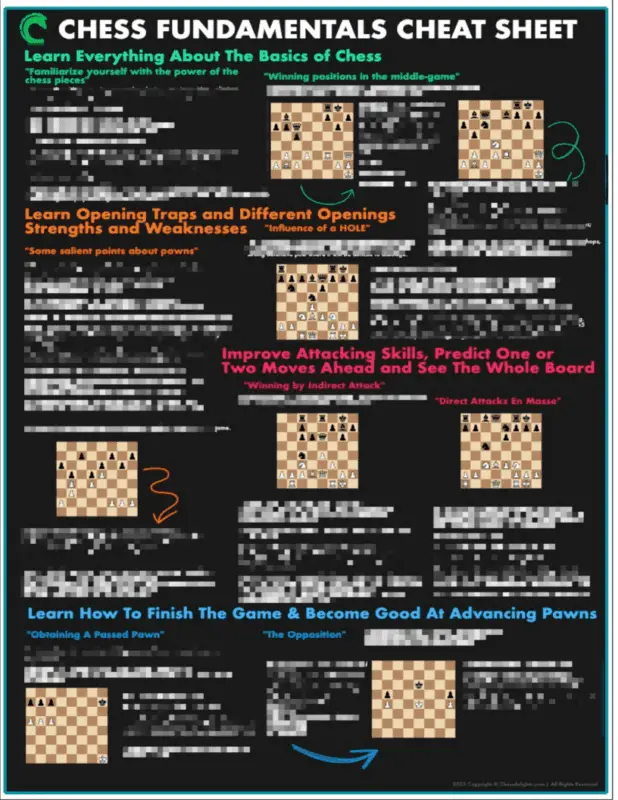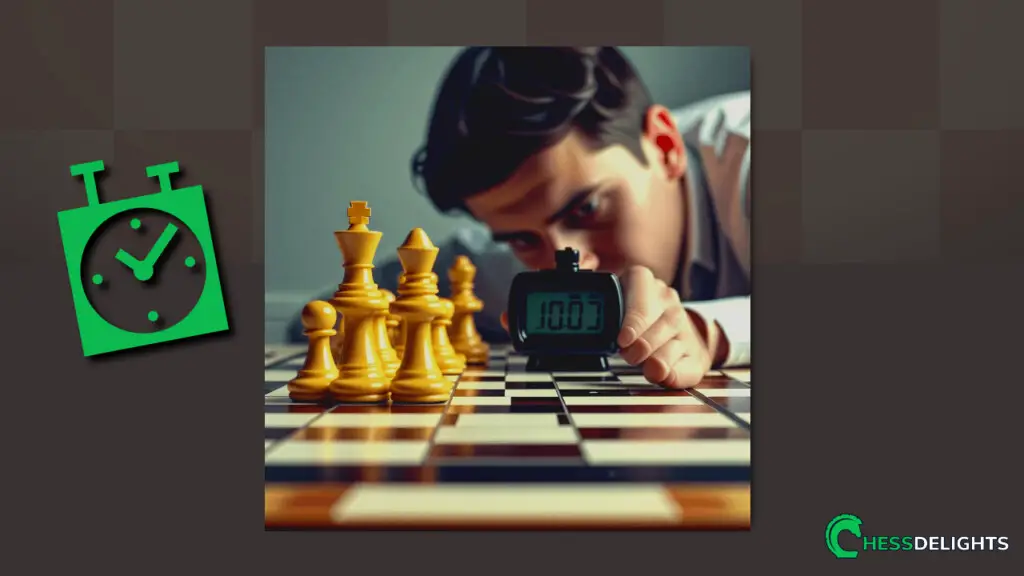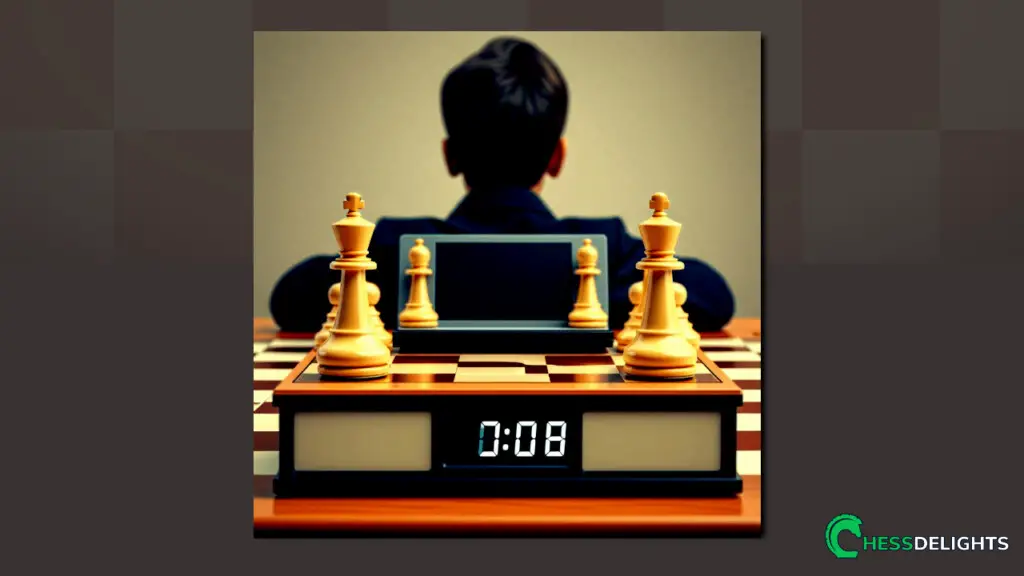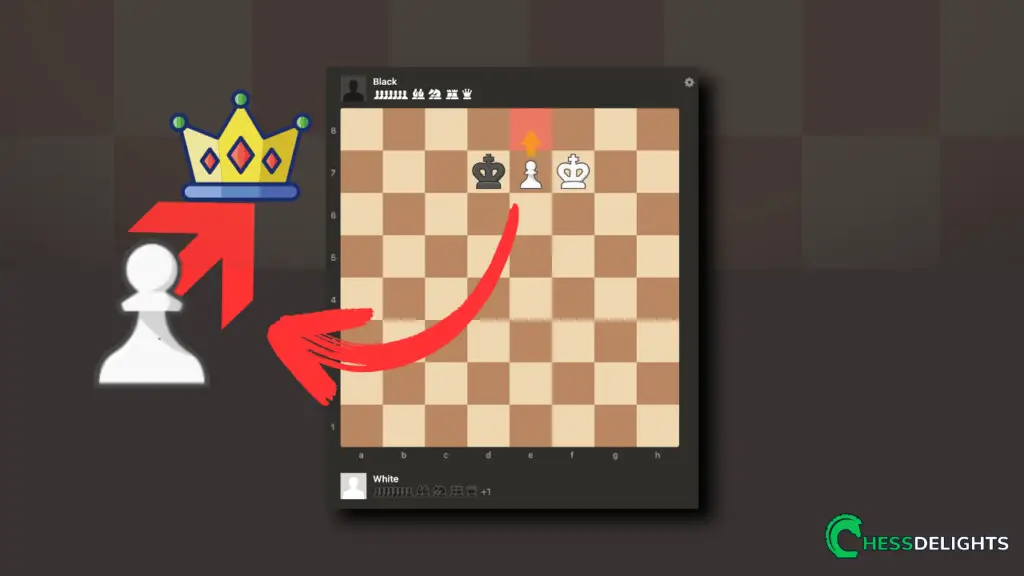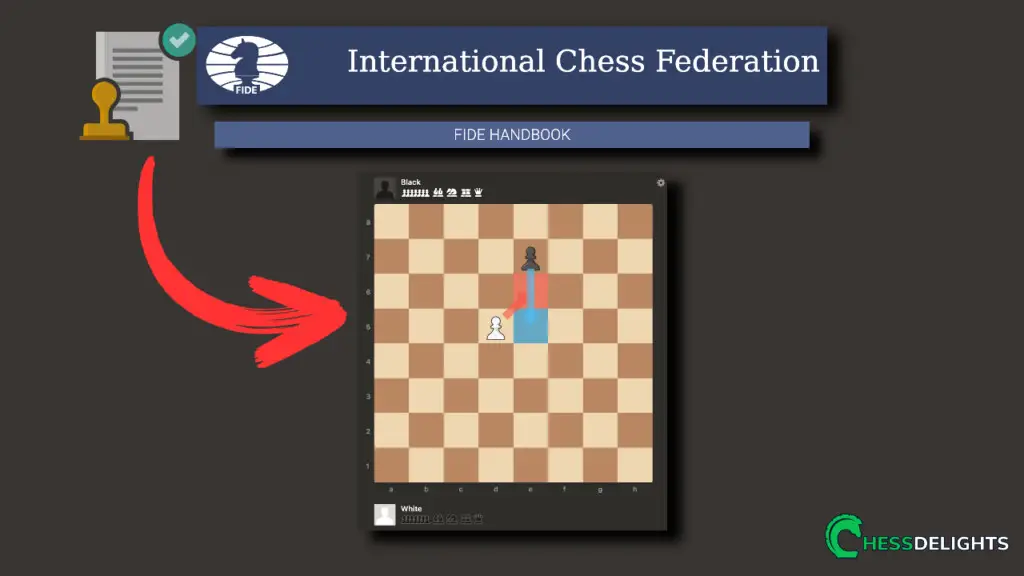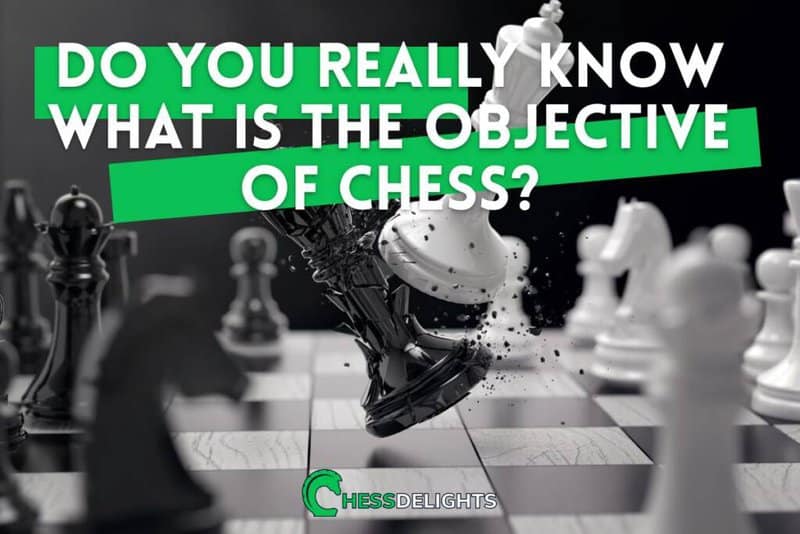Why is there a chess clock in tournaments? And why a chess timer should be learned as well?
If you are new in playing chess, you may not be familiar with chess games having time limits.
It would be very inconvenient and sometimes annoying if we will have to wait long hours for our opponent to make their 6th move of the game… 🙂
That is why it was a great decision from chess experts or organizers to require chess games to have a chess clock during a game.
This is mostly beneficial for chess tournaments. Just imagine having 100 chess players competing without a timer or a chess clock.
Now, if you are a beginner and don't have any idea how or what are the rules in playing with a chess clock.
You are in luck because this article is exactly for you…
Nowadays, chess organizers or any chess tournament would need you to at least know how to operate a chess clock and even understand important chess clock rules.
Read the 33 important chess clock rules you need to follow.
Table of Contents
What is a digital or analog chess clocks?
Digital or Analog Chess clocks that are used in a chess game consists of two clocks that are adjacent to each other, the purpose is to have two chess players have a specific set of time that can be tracked during a game.
The chess clock has two buttons for each clock, and the buttons will stop one clock and starts the other clock vice versa.
Chess players will have to move and then press the clock's button, signaling that it is the other players turn to move and that its chess clock will start to countdown again.
You need to understand or practice playing with a chess clock because it can be a reason to lose a game.
So, there are a few essential rules and chess clock characteristics below that you should know or be aware of when you join a chess tournament.
Recommended Reading: If you want to learn about the importance of chess clocks, read this article.
1. Check your chess clock if it is silent
To be considered in a competitive chess game, the chess clock should not produce any “tick-tocks” or any noise that can distract the players on that board and players on the other chess tables.
You should inspect a mechanical chess clock if it does produce any noise that could distract you in your game.
It is also a good practice to ask an arbiter for assistance to check nearby chess clock if it does produce any noise during playtime.
2. You need to check your Flag
Well, all it means is to check your allotted time, you need to be aware of your chess clock time during a game.
Did you know that you can win if your opponent loses time or you can lose a game if you run out of time on your chess clock? (there will be different scenarios about this like if you only have a King left you can't win, or your opponent has no way of winning with its current chess pieces)
And do you know that before there were digital chess clocks, there was an actual chess clock that has a flag? This Flag falls when your chess clock runs out of time.
3. Claim a Flag to win
The Flagging rule can be very tricky, I've read and heard a lot of story regarding this and let's make it clear once and for all.
You can win if your opponent runs out of time, but first, you need to claim it.
That is Flagging your opponent, tell the arbiter that your opponent's time already ran out. That is how you win a game.
Because your opponent will not tell you that his chess clock is over, you have to do so.
4. Chess clock or Checkmate
You are going to be checkmated, but your opponent's chess clock is going to run out. Who is going to win first, the checkmate or the chess clock?
The answer is whoever claims to be the first… 🙂
You need to understand that you need to Flag, your opponent to claim a win.
If you were not able to Flag your opponent before getting checkmated, then your opponent wins.
It is whoever can claim first wins.
5. The chess clock can start without you
If you come late to a chess tournament and you play black, your opponent can start the game by moving and pressing its clock.
Your timer will start to countdown even if you are still not around.
I remember seeing this during Bobby Fischer's game with Spassky. Fischer was late, and Spassky made the first move and started Fischer's time.
It's essential that you follow this rule if you don't want to lose using running out of time on your chess clock.
6. Find out the time limit
Before you even start pressing the button of a chess clock, you need to be aware of the set time of the chess clock first.
It is a good practice to find out first what is the time limit that was set on your chess clock.
Do not go on and start playing without even knowing your time limit. You could lose a game just by not knowing that simple rule.
7. Pressing a chess clock button is part of a move
You need to stop your clock every time you make a move.
The pressing of the chess clocks button is considered to be part of a move.
Your opponent is not allowed to make a move before you can stop your clock first and start your opponent's clock.
A move is considered complete only after a chess player hits the chess clock button.
8. Hovering over a chess clock is not allowed
Do not place your finger on top of a chess clock that is not allowed.
You could get forfeited if you do this on an actual game. There are of course different penalties that an arbiter can implement on a chess player if caught.
I suggest you keep yourself aware of this chess clock rules to be on a safer side.
9. Press the chess clock button with your hand
Can you hit the button of a chess clock with a chess piece that you have captured in a game?
Well, that is not allowed and may get you into trouble of getting forfeited.
Because the rule says that you have to press the chess clock button with the same “hand” that you used to captured or moved a chess piece with.
It says, “hand,” you cannot use other forms of material to press the chess clock button…
Or else you will get into some form of penalty if caught by an arbiter or a chess director.
10. You can stop the clock after an illegal move
When you have witnessed an illegal move from your opponent, you can call the attention of an arbiter and stop your clock.
Whatever fault your opponent has done that is illegal during the game; the arbiter can add additional time to your chess clock or like for some other examples the arbiter can declare you the winner if the issue is a lot worse.
But you do have the option to stop the clock and call the arbiter if you think it is necessary to do so.
11. Placement of the chess clock in a game
Usually, there is a rule that it is the Black's decision where to put the chess clock during a game.
But, the arbiter can decide as well on where to put the chess clock, sometimes it is whichever the arbiter is more comfortable within placing the chess clock in a chess tournament.
If the arbiter wants to have a uniform look of the chess sets and chess clocks placement in a tournament, then you need not touch the clock and replaced it to whatever place you desire to put it.
12. You should be able to see the chess clock properly
It is required that chess players should correctly see and read the numbers or digits of a chess clock during a game.
A defective chess clock should not be allowed on a chess tournament and a proper inspection of the chess clocks before the game is helpful for the chess tournament organizers.
13. Explain and discuss the operation of the chess clock
Before a game should start, an arbiter or if allowed by the organizers, the chess players should explain the procedure of the chess clock.
Why do they need to explain the operation of a chess clock? The answer is to avoid confusion, mainly if your opponent has never used the type of chess clock on that particular chess tournament.
It is wise for both chess players to agree on how the chess clock should operate and how the game should proceed and end.
14. Do not pick up the chess clock
It is not allowed to pick up a chess clock, especially during an ongoing chess game.
If caught by an arbiter, you might get a serious penalty or even lose the game immediately.
If it is essential to do so, you should call the attention of the arbiter or tournament director before you pick up the chess clock.
15. The chess clocks should be manipulation proof
It is required that the chess clocks in a chess tournament should not or cannot be manipulated easily.
A chess clock that can be easily manipulated is worthless, although I do believe that today's chess clocks are not that easy to be manipulated.
If someone even tries to manipulate a digital chess clock, an arbiter can easily spot that person because the process will not take only one push of a button to change the settings.
You need to be sure that the chess clocks that you are using in a chess tournament cannot be manipulated easily.
16. Know the time mode of the chess clock
There are different types of time mode in a chess clock.
But some of the most common time modes is the increment and time delay…
You need to be aware of those types of time mode so that you will know how to react during your game.
17. A chess clock and Chess notation
In some chess tournaments, it is required to write down the moves during a game by chess notation.
This is used to trace back the game if there are any disputes from a single chess player or both players.
The rule is you can write down the move before or after pressing the button of a chess clock.
But if the time left on a chess clock is 5 minutes or less, then the chess players are no longer required to write down the chess moves. This is normal in Blitz game, where players should be focusing on the move, not the chess notation.
18. Adjusting a chess piece without your chess clock running
Chess rules say that you are not allowed to adjust any chess piece if your chess clock is not running.
Only the person who turns to move and the clock is running can claim an “adjust” rule.
The chess player can adjust a chess piece if its clock is running, and it will be illegal for the other player to adjust its chess pieces when playing with chess clock rules.
19. Chess clock can be replaced during a game
An arbiter or a chess director can replace a chess clock if found to be defective even after the game has already begun…
If it is quite evident that the chess clock is defective, the arbiter has to give its best judgment to whatever time the new chess clock has to be set with.
That is why it is essential to check the chess clocks function first before starting to play.
20. You must stop the chess clock
Is it your opponent's obligation to tell you that you need to stop your chess clock from running?
Well, the answer is no, your opponent will not tell you or should not even bother telling you that your chess clock is running out of time.
This may be common to a beginner chess player, who forgets to stop the timer and loses a significant amount of time because of that.
If you are playing with a chess clock for the first time, do not expect your opponent to tell you to stop the clock. You need to make it a part of your move so that you will not forget pressing the chess clock button after every move you make.
21. You can or cannot use your chess clock
In a chess tournament, the chess clocks are being served to the chess players during the game.
And you need to use the chess clock that is placed for that tournament. If you do not use that particular chess clock, there may be some penalties or disputes that can happen before the game.
But, usually, the chess clocks that are already there are the only chess clock to be used.
In other chess tournaments, if you bring your chess clock as required by the tournament director, then you are allowed to use your chess clock.
If there are any exceptional cases during a game, using the tournament's chess clock or your chess clock can be allowed after proper delegations.
22. Asking to change to a better chess clock when late
It is allowed to request an arbiter if you can change the chess clock to a better model or a newer version.
You can do that even if you are late, but after getting a new chess clock, your time is still going to be the same as if you used the replaced timer.
Being late and replacing the chess clock cannot save you from getting a penalty of losing time in a game.
The arbiter is going to set the appropriate time you were late, and then the game will proceed.
23. You cannot stop your chess clock except for valid reasons
There is no way you can stop your chess clock whenever you feel and want to.
If you feel that you need to go to the bathroom or do something else, you cannot ask your opponent to stop the clock and continue once you are done.
The chess clock will run even if you are not around; you can only stop the chess clock with a valid reason addressed by the arbiter or the tournament director.
The arbiter can stop the chess clock and make the necessary adjustment once an agreement has been finalized.
24. Stop the chess clock even after winning
The arbiter can solve any disputes you and your opponent may come across, right?
Well, not really, if for example you won the game by checkmate and then your opponent congratulates you and then sees that your timer has run out, your opponent can then claim that you ran out of time.
This is an unnecessary discussion or argument since you already won by checkmate, but you can avoid this by just pressing the button of the chess clock to stop it.
The tournament director or arbiter cannot possibly find out what happened during the game if the arbiter was not there. The worse thing that can happen is proclaiming the game a draw instead of a win for you.
Make it a habit to stop the chess clock every after you move.
25. Always check for chess clock glitches
Indeed, you had already checked the chess clock even before you and your opponent started the game…
But that does not mean the chess clock is glitch-free.
There have been reports in live tournaments that chess clock glitches can occur at any point of the game.
What I mean is that sometimes your opponent's chess clock jumps through different timings instead of going down to zero the chess clock moves back to 1 minute or 3 minutes, for example.
You need to call the attention of the arbiter and then show the problem, focus on your game but be observant with chess clock glitches too.
26. The digital clock is mostly preferred in the chess tournament
Nowadays we have different types of the digital clock, but we still have some mechanical or analog chess clocks being used in tournaments.
If in case there is an argument between using an analog or digital clock, the arbiter or the tournament director will choose a digital clock against a mechanical clock.
Not only because a digital clock is modern, but because an analog clock has a minor feature than a digital clock. Timing modes can be set with a digital clock that is why it is more preferred in chess tournaments.
27. Chess clock time delay control
When you are playing a time delay setup, your chess clock will only start to a countdown after the time delay is finished counting down.
For example, if the chess clock is set for a time delay of 10 seconds, the 10 seconds will first start to countdown, and once it is over, your timer will begin to countdown.
After that, your timer will start on that 10 seconds again and then after the 10 seconds, the time that was left previously will begin to countdown this will continue until the allotted time runs out.
The time delay is being set for 5 or 10 seconds depending on the chess tournament itself.
28. Chess clock increment timing control
This type of setup is one of the most common types of timing modes used in chess tournaments.
The chess clock will start as standard countdown timer but after every move and press of a button, additional time will be seen to the timer.
If for example, the increment setup that was given is 20 seconds, that 20 seconds will be added to the remaining time after hitting the button of a chess clock.
In tournaments, the increment time that can be given is 30 seconds.
That would be an excellent addition to your chess clock timer, more time to think of an excellent move.
29. Chess clock blitz chess timing control
This type of game is quite a fast-paced game; you can have at least a minimum of 5 minutes in one gameplay of chess.
Blitz chess game can be distinguished by having the chess clock set to less than 10 minutes.
A less than 10 minutes chess game is considered a blitz chess game. This type of timing mode does have an increment feature on its chess clock.
For its increment option, the most common would be not less than 2 seconds.
30. Chess clock bullet chess timing control
The bullet chess type of timing modes in chess clock is set for at least less than two minutes…
This is a fast-paced chess game, faster than the blitz chess timing mode.
There is an increment or delay timing mode setup with a bullet chess game. The increment or delay setup for bullet chess is found to be not less than 1 second.
Chess notation is no longer applicable for this type of chess game.
31. Chess clock quick chess timing control
This type of chess timing modes is widely used in chess clubs, and the quick chess setup is typically played with the timing of more than 10 minutes.
You can check out chess clubs and some chess tournaments playing even more than 60 minutes.
I don't know if I can play that long, but I find it more convenient to play between 15-20 minutes online.
32. Chess clock standard chess timing control
This is the type of chess game that I am used to playing, and the standard chess timing can be set to more than 30 minutes.
The rating of a chess player can be affected if, for instance, the timing is more than the Quick chess timing control. I haven't seen any other apparent explanation about this but this type of time control overlaps will have a change on your chess ratings.
33. Chess clock multiple time control
This type of chess time control can be explained by following the common multiple time control for FIDE rules of 90 minutes for the first forty moves and then followed by 30 minutes for the rest of the game.
And then after an increment of 30 seconds for every move starting from move one.
This is a cool type of time control in chess tournaments, don't you think so?
Wrapping Up
These chess clock rules are not my rules of course… 🙂 Please do keep in mind that different rules affect the actual game with a chess clock.
I have consolidated these rules from different sources and researched this carefully in the best possible way that I could.
This is specific rules that I would appreciate knowing about chess clocks if I am going to compete in a chess tournament as a beginner.
I do hope you were able to learn something new, and if you have some comments or have something to share or tips about chess clock rules, please do leave a comment below.
Recommended reading: If you want to know if you should choose books or videos for learning chess, read this article.
